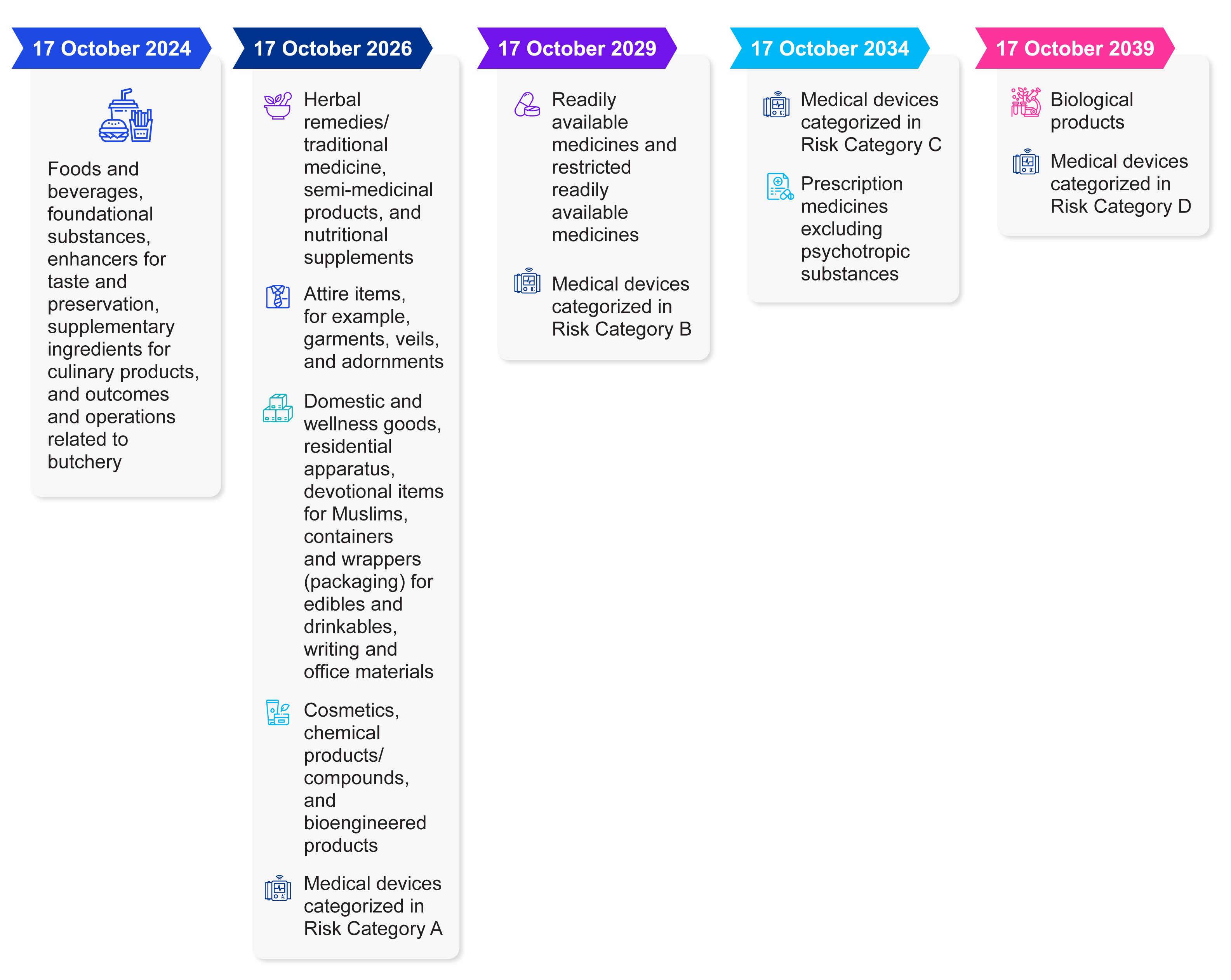In Indonesia, Muslims are increasingly striving to align their consumption habits with their religious beliefs, driven by a growing urban middle class with enhanced access to global products and services. In line with this, Law No. 33 of 2014 and its amendments (Law 33/2014) mandate that all products distributed and traded within Indonesia must possess halal certification. Further emphasizing this requirement, Government Regulation No. 39 of 2021 on the Implementation of Halal Product Assurance (PP 39/2021) specifies that all goods and/or services including food, beverages, medicines, cosmetics, chemical products, biological products, and genetically engineered products, traded, or circulated within Indonesia must be halal certified. Products that are not halal certified must clearly state that they are not.
Non-compliance with these regulations may result in severe penalties, including administrative sanctions such as written warnings, fines up to IDR 2 billion, or product recalls, highlighting the importance for businesses to thoroughly understand and adhere to these stipulations.
Pre-certification requirements
The process for obtaining halal certification in Indonesia is detailed and rigorous, beginning with an application submission through the Halal Product Assurance System Portal (https://ptsp.halal.go.id) or the Pusaka Mobile Application, integrated with the SIHALAL information system. Applicants must furnish comprehensive documentation, such as business and product details, lists of ingredients, production process descriptions, and halal product assurance system documents.
Upon submission, the Halal Product Assurance Organizing Agency (BPJPH) promptly reviews the documents for completeness within two business days and appoints an appropriate Halal Inspection Agency (LPH) for further evaluation. The LPH then rigorously examines and tests the products over up to 15 business days to ensure compliance with halal standards.
Following this assessment, the Indonesian Ulema Council (MUI) conducts a halal fatwa session, typically finalized within three business days, to determine the halal status of the products. If approved, the BPJPH issues a halal certificate within one business day.
Post-certification requirements
Post-certification, businesses must comply with specific halal labeling requirements as outlined by the Decree of the Head of the BPJPH No. 145 and 40 of 2022. Products with halal certificates issued after 1 March 2022, must display halal labels, and existing packaging bearing the MUI halal logo must transition to 'Halal Indonesia' labeling by 2 February 2026, according to the guidelines.
Certification of imported products
GR 39/2021 also extends to imported products, which must be halal certified upon entry into Indonesia, with certification applications to be submitted by importers or their official representatives. Products covered by halal certificates from foreign halal agencies that have agreements with the BPJPH on mutual recognition of halal certification are exempt from additional certification requirements. However, certificates for raw materials, additional materials, auxiliary materials, and slaughtering results must be registered before distribution within Indonesia.
As of the end of 2023, nine foreign Halal Logistics Nodes (LHLNs) have signed Mutual Recognition Agreements (MRAs) with the BPJPH, facilitating international recognition and acceptance of halal certificates. These include organizations from Korea, the United States, Taiwan, Thailand, Chile, and New Zealand, among others. Another global collaboration is currently in the pipeline and includes countries like Australia, China, Denmark, and several European nations. This highlights the vital role of halal certification in the interconnected global marketplace. By ensuring compliance with Islamic law, this comprehensive approach not only builds trust but also broadens market access for Indonesian products worldwide. Please note the halal certification deadlines for several products as stated in the table below:

If you have any questions or require any additional information, please contact Hanim Hamzah and Andina Sitoresmi of Roosdiono & Partners (in association with KPMG Law).
This alert is for general information only and is not a substitute for legal advice.
About Roosdiono & Partners
Roosdiono & Partners is an Indonesian partnership and a member firm of the KPMG global organization of independent member firms affiliated with KPMG International Limited, a private English company limited by guarantee.
Roosdiono & Partners is an Indonesian law firm which provides legal services in association with the KPMG Law network. Roosdiono & Partners is a separate legal entity. Neither Roosdiono & Partners nor entities which are a part of the KPMG global organization (including other law firms) has any control over, or acts as an agent of, or assumes any liability for the acts or omissions of, the other.
For more detail about the structure of the KPMG global organization please visit https://home.kpmg/governance.



